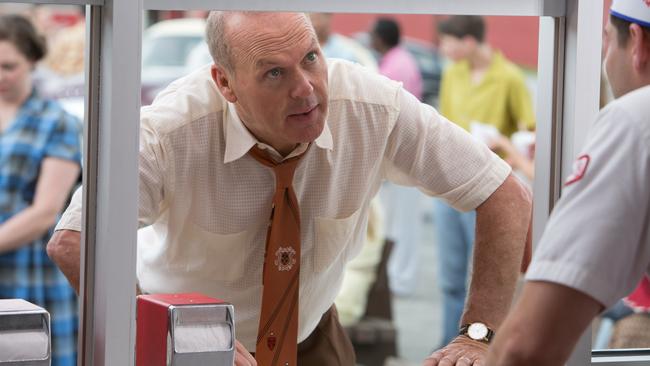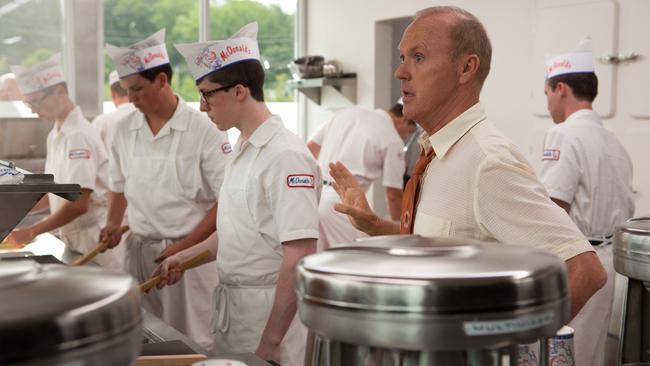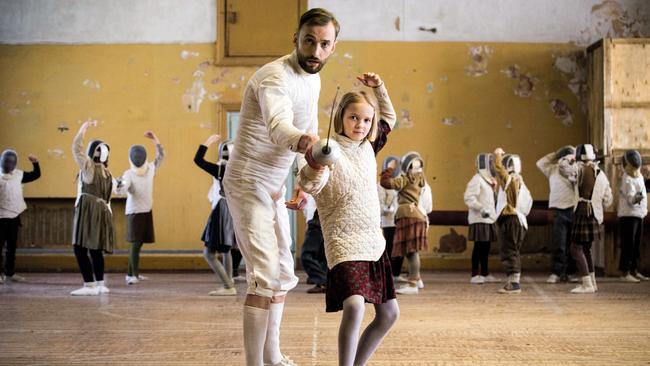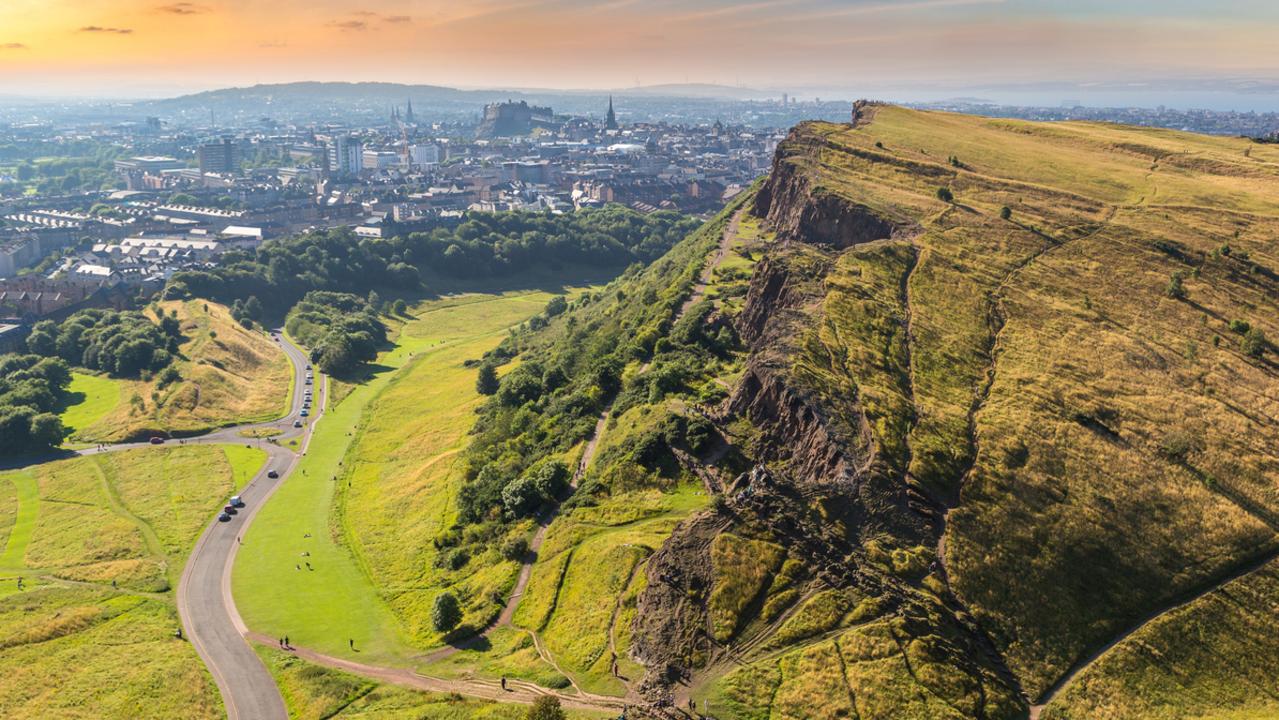Film reviews: McDonald’s origins in The Founder; The Fencer
John Lee Hancock’s The Founder appears to revel in depicting the ugliest excesses of rampant capitalism.

The Founder is a rather surprising film to emerge from Hollywood at a time when the major studios seem locked into an increasingly depressing cycle of sequels, remakes, crude comedies and sci-fi epics. As it happens, The Founder isn’t made by one of the big companies, and that’s probably why it appears to revel in depicting the ugliest excesses of rampant capitalism, the dog-eat-dog world in which the small innovator supplying a quality product is all too quickly gobbled up by a vast organisation for which profits are all that matters.
The film is about the early days of McDonald’s, the fast food company so ubiquitous on an international scale that to find a community almost anywhere without those famous golden arches seems almost abnormal.
But the filmmakers — screenwriter Robert Siegel and director John Lee Hancock — aren’t delving into the quality of the product and how it might affect the health of consumers; their aim here is to show how it all began, and to do that they take us back to 1954 when an unsuccessful salesman named Ray Kroc (Michael Keaton) was trudging around the boondocks of Middle America, attempting, with little success, to sell five-spindle multi-mixers designed for the creation of “delicious frosty milkshakes”. Every potential customer receives exactly the same presentation without variation, and most decline to purchase.
Kroc (the name, unfortunately, seems only too apt) gets his inspiration from listening to long-playing records of the Power of Positive Thinking variety, and he takes their mantra (“Nothing in the world can take the place of persistence”) to heart; he might be a lousy salesman, but he’s never going to give up.

It comes as quite a shock when his head office informs him that a small company in San Bernardino, California, has ordered eight of the mixers, and he assumes it must be a mistake. It’s no mistake, as he soon discovers. The McDonald brothers, Dick (Nick Offerman) and Maurice, aka Mac (John Carroll Lynch), have established a hugely popular hamburger restaurant based on the principle of speed and quality. The brothers, who formerly worked in Hollywood at Columbia Pictures, first attempted to make money by running a movie theatre, but that was a flop and now they’re on to a good thing. Their streamlined production of burgers and fries means that no customer has to wait for their food, and they show Kroc around their kitchens with pride.
With his keen eye for the main chance, Kroc quickly sums up the two McDonalds: Dick is the businessman, Mac the idealist. Why not franchise? he suggests. They tell him they tried but it didn’t work — not enough quality control. But they agree to sign a contract with Kroc to expand the business, and that’s the beginning of one of the greatest success stories in the history of food — or a tragic disaster, depending on your point of view.
Kroc’s dedication to capitalism is boundless. He proves to be a skilful entrepreneur who surrounds himself with like-minded people and a legal team that agrees with him that “contracts are like hearts — they’re meant to be broken”. He sees from the start that “McDonald’s could become the new American church”; that the golden arches the brothers adopted as their logo could be seen as symbols of family and community, like churches and city halls. This “professional leech”, as he’s referred to at one point, also appreciates the importance of real estate; the value is not so much the restaurants themselves as the land on which they’re established.
Keaton is superb in this role, convincingly repulsive as the conscience-free go-getter who thinks nothing of betraying his professional and personal relationships to get to the top. The film’s title is ironic; Kroc later claimed to be the founder of the company that today still bears the names of its real founders. Hancock, whose last film was the Disney/Mary Poppins story, Saving Mr Banks, clearly revels in this opportunity to dig deep into the unsavoury history of this great success story, and he incorporates telling photographs of the real-life Ray Kroc, and several of the other key characters, as the film comes to an end. It’s a terrific movie — but maybe you should think twice before deciding to enjoy a burger after you see it.

Coincidentally, The Fencer is set around the same time as The Founder, and also deals with a bullying larger entity that attempts to swallow a small, vulnerable one; in this case, though, we’re talking about countries, not corporations, and in the early 1950s it’s the Soviet Union that has effectively invaded and taken over the Baltic states of Lithuania, Latvia and Estonia and incorporated them into the USSR. The story told in this Estonian-Finnish co-production is, we’re assured, a true one.
As the film begins we’re reminded that, for a period during the war, Germany occupied Estonia and forced young Estonians to join the German army. In the postwar era the Russians had a policy of sending anyone who wore a German uniform to a labour camp. This is the fate Nelis (Mart Avandi) is attempting to avoid, mainly by keeping a low profile. An Estonian schoolteacher, he has been living in Leningrad but has decided he’ll be more secure at home and has recently arrived in the small Estonian town of Haapsalu to take up a teaching position there.
Nelis quickly discovers that the kids are keen on sporting activities but they’re frustrated because there’s no equipment available. He establishes a school of fencing and, despite the dismissive and even hostile attitude of the school’s headmaster (Hendrik Toompere), trains a bunch of kids to take part in a national competition in Leningrad, though Nelis risks his own safety if he accompanies them there.
Stories of inspirational teachers invariably make for feel-good movies, and this is no exception. Seeing the children gradually gain in confidence to the point that they’re able to take on a highly trained fencing team from Moscow makes for pleasurable cinema.
While battling authority figures and attempting to keep his head down, Nelis finds time for romance with a fellow teacher (Ursula Ratasepp), unaware at first that the headmaster — portrayed as a stock movie villain — has instigated an investigation into his past.
Films from the smaller Baltic countries rarely surface in Australian cinemas, making The Fencer particularly welcome. It’s an assured piece of work and, as confidently directed by Klaus Haro, it intrigues for much of its length, building to a suspenseful climax. Some elements seem a little simplified, but overall this is a pleasant surprise.
The Founder (M)
4 stars
National release
The Fencer (Miekkailija) (PG)
3.5 stars
Limited national release



